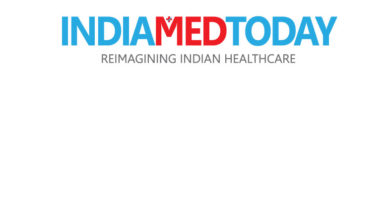FICCI’s roundtable talks about collaborative efforts towards affordability and accessibility of cancer care in India

The round table was titled ‘Road Map for Making Cancer Care Affordable and Accessible in India’
Vishal Chauhan, Joint Secretary, Ministry of Health & Family Welfare, Govt of India, highlighted the profound burden of cancer on society and shared that the recent continuum of care, post-screening, has emerged as a significant challenge, which necessitates urgent action. He also expressed that while the government has launched programmes for infrastructure creation and treatment provisioning, there is a huge scope for collaborative efforts towards affordability and accessibility of cancer care in the country.
Addressing Regional Roundtable – Road Map for Making Cancer Care Affordable and Accessible in India’, organised by FICCI, jointly with the Ministry of Health & Family Welfare, Government of India, Chauhan added that the Parliamentary Standing Committee on Health and Family welfare in its 139th report has made several recommendations on cancer care for which all stakeholders need to work together. He also urged the oncologists to work with ICMR to develop standard treatment guidelines on various types of cancers to help in better outcomes and ensure that these protocols are followed across facilities.
Chauhan also advised FICCI to garner support from the industry through the CSR funds. He suggested that an online portal needs to be created where the states can register their requirements at various levels of cancer infrastructure and industry could volunteer to provide funds or resources in their interest areas.
Dr R Dixit, Additional Director (Medical Education), Govt of Gujarat shared various initiatives in the cancer care domain by the Gujarat government including monetary subsidy for cancer infrastructure, free cancer treatment under school health programme, incentives for specialists to work in periphery areas etc. He also shared that Gujarat has a radiotherapy department in all six medical colleges and recently day care centres for chemotherapy have been initiated in all district hospitals with Gujarat Cancer Research Institute (GCRI). He further expressed that we need to focus on preventive oncology as well as palliative care and industry will have a large role to play in these areas.
Raj Gore, Co-Lead, FICCI Task Force Cancer Care and CEO, Healthcare Global Enterprises (HCG) shared that the surge in the incidence of various types of cancers coupled with sub-optimal mortality to incidence ratio, low affordability of treatment and poor quality of survivor’s life in the country is taking the gradual shape of an impending health crisis. Last year alone more than eight lakh Indians were estimated to have lost their lives to cancer, 1.5 times the total lives lost to COVID-19 pandemic. He further expressed that it is time to taking a concerted effort to contain and control the imminent cancer epidemic, taking cognizance of which FICCI constituted a Task Force on cancer care in 2022 to bring all stakeholders together and work towards making cancer care affordable and accessible in India.
Dr Kumar Prabhash, Medical Oncologist, Tata Memorial Centre, Muzaffarpur (HBCH & RC) shared the unique example of PPP where a tertiary hospital is working closely and successfully with the district hospital. The screening is followed by confirmation of cancer which helps in the continuum of care. The government is encouraging other States to follow this model too.
Srimayee Chakraborty, Partner-Healthcare, EY Business Consulting, India, highlighted that Western states (Gujarat, Maharashtra, Goa and Rajasthan) account for close to 15 per cent of total incidence. Outcomes measured as Mortality to Incidence ratio in the Western states is higher at 42 per cent compared to all India average of 32-33 per cent highlighting the graveness of the situation. Hence, there is a need to tailor make interventions for cancer care by geographic region in India through a deep understanding of the local nuances which characterise the disease burden and the state of clinical outcome in the specific geography.
The round table was attended by various experts from the oncology sector, including senior clinicians, hospital administrators, diagnostics, insurers, Medtech and pharma companies. It was deliberated that the key focus should be to ensure there is the maximisation of reach and coverage in terms of a) awareness and prevention – modifying exposure to risk factors that potentially lead to cancer; b) detection and diagnosis – ensuring early detection and accurate staging of the disease and c) treatment including palliative care – a multidisciplinary approach to treatment with a focus on affordability, equitable access, quality of outcomes and palliative care. At the same time, we need to make efforts towards standardising care pathways and using them as a reference point for designing reimbursement packages within the region and across the nation will be key to ensuring that patients are offered equitable choice for treatment which is agnostic to the location or type of facility selected.
Further, it was discussed that there is a need for expanding cancer registries and health information systems for collecting standardised and comprehensive data which will enable evidence-based policy decisions and research, especially in states such as Rajasthan and lay the groundwork for long-term success in this direction.

